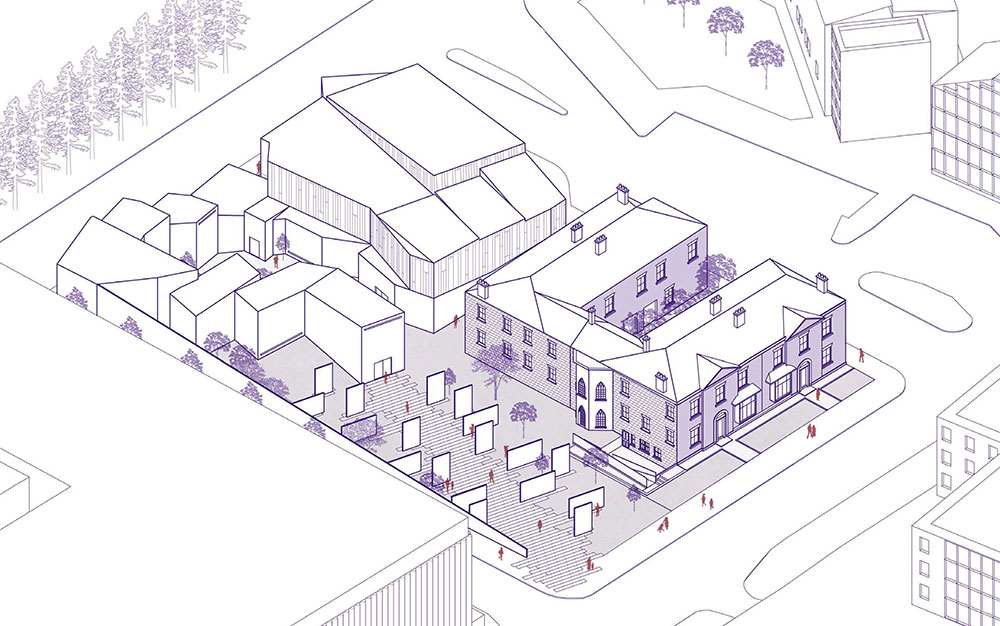Wow what a year we have had! I want to take my hat off and say thank you to all our students and the staff team for their determination, strength and resilience. Well done!
PRAXXIS is a feminist teaching atelier and research collective in both BA3 and MArch pursuing pedagogy and research within, and through, feminist architectural theory and practice. We have asked the students to explore feminist strategies and tactics to move our discipline towards a fairer and more equal society. This year we have challenged the students to construct their own agenda and develop forms of practice whose aim is not just a building but a tool to transform the social, political and economic conditions of a place by exploring Archives and Feminisms.
At the beginning of the year the BA3 PRAXXIS students came together with the MArch students to partake in our Feminisms Conversations series. These act as a supportive and discursive platform to explore non-binary approaches to practice, education and our profession. Ranging from preconceptions on the feminist agendas to feminist technologies and from privilege to equity the discussions challenge our current knowledges and allow to think about what may have to unlearn and relearn. The BA3 students have shared the same pedagogic approaches across the atelier and the same site and agenda with our MArch 1 students.
In response to a site next to the Pankhurst Centre in Manchester City Centre we have used Feminist Design Tools such as Feminist Theories, Dialogues, Interruptions, Interventions and Participatory Tools to enable our students to design an Archive of Feminisms plus other key feminist agendas. Each archive/library was driven by an exploration of the four key waves of feminisms as well as an issue identified by each individual student. Projects this year are socially motivated and respond to huge range of social (and spatial) issues including challenging gender stereotypes, increasing aspirations, decolonizing war archives, celebrating the vagina, as well as inspiring protest movements, critiquing the refugee and asylum systems, exploring gender through performance, supporting survivors of sexual violence and remembering victims of violent crime. Students were asked to look at the human relationships within their proposals by considering the interconnected list of protected characteristics to enable a full exploration of the spatial potential of the complex issues of sharing internal or external archives and learning or social spaces across different groups of people.
PRAXXIS continually encourages robust and open discussions, and we are interested in projects which are both personal and political. Our overall aim is to create places shared between people of all ages, abilities, attitudes and occupations.
Please check our work out on Instagram and Twitter on @praxxis_f


